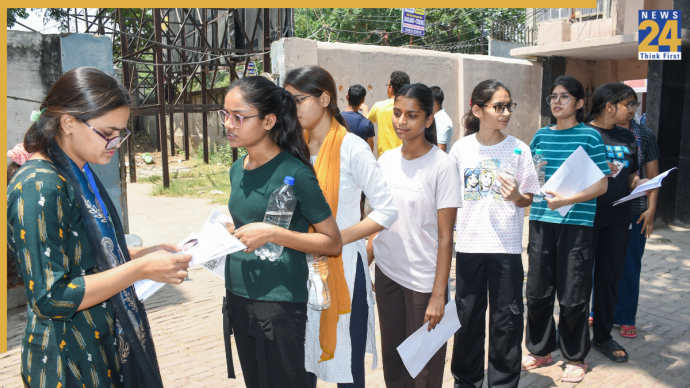Exit polls for the 2024 UK general elections predict a decisive Labour win, ending nearly 15 years of Conservative rule. Final results are expected by late Friday morning (IST). Following Prime Minister Rishi Sunak‘s early election call, his gamble seems to have failed, with significant Conservative losses predicted. Labour leader Keir Starmer is likely to become the next PM, as Labour is projected to win its first election since 2005 by a historic margin. Voters appear set to punish the Tories for 14 years of chaotic rule, potentially ousting several ministers, including possibly Sunak.
All about Keir Starmer
Keir Starmer was born in London in 1962 and raised in Oxted, Surrey, by his toolmaker father and NHS nurse mother. Politically active from a young age, he joined the Labour Party Young Socialists at 16. Starmer holds a Bachelor of Laws degree from the University of Leeds and a postgraduate Bachelor of Civil Law degree from the University of Oxford. Before entering politics, he had a successful career as a human rights barrister, advising the Northern Ireland Policing Board and being appointed Queen’s Counsel in 2002. He served as Director of Public Prosecutions from 2008 to 2013, handling high-profile cases like the Stephen Lawrence murder.
Also Read: UK Voters Head To Polls As Rishi Sunak’s Political Future Hangs In Balance
Elected as the MP for Holborn and St Pancras in 2015, Starmer supported the Britain Stronger in Europe campaign during the 2016 Brexit referendum and later advocated for a second referendum. He won the 2020 Labour leadership election on a left-wing platform but has since positioned himself as a centrist, pragmatic leader. As Labour leader, Starmer has distanced the party from the Corbyn era, focusing on a more professional and electorally viable approach. Known for his vegetarianism and self-professed socialism, Starmer’s leadership has divided opinions, with some viewing him as shifting towards the right in his pursuit of power.
Labour policies that boosted Keir Starmer
- Economic stability is a priority for Starmer, focusing on adhering to strict spending rules and fostering economic growth without making extensive spending commitments, prioritizing fiscal responsibility.
- Improving NHS services is another key objective, with plans to reduce waiting times by introducing 40,000 additional evening and weekend appointments weekly to address staffing shortages and backlogs.
- On border security, Starmer proposes establishing a new Border Security Command to combat illegal migration and trafficking, and he is open to negotiating with the EU on migrant quotas.
- Starmer’s agenda includes creating Great British Energy, a publicly owned clean energy company, to facilitate the transition to green energy as part of Labour’s environmental initiatives.
- Addressing anti-social behavior is also on Starmer’s law and order agenda, promising measures to tackle this issue effectively.
- In education, Starmer plans to recruit 6,500 new teachers in crucial subjects to alleviate staffing shortages within the educational system.
- In terms of foreign policy, Starmer aims to forge a new strategic partnership with India, pursuing a free trade agreement. Additionally, he intends to cease arms sales to Israel and progress toward recognizing a Palestinian state.
Also Read: Tragic Incident: Indian-Origin Woman Passes Away On Melbourne-Delhi Qantas Flight Before Take-Off













